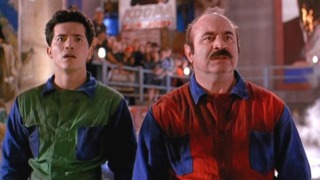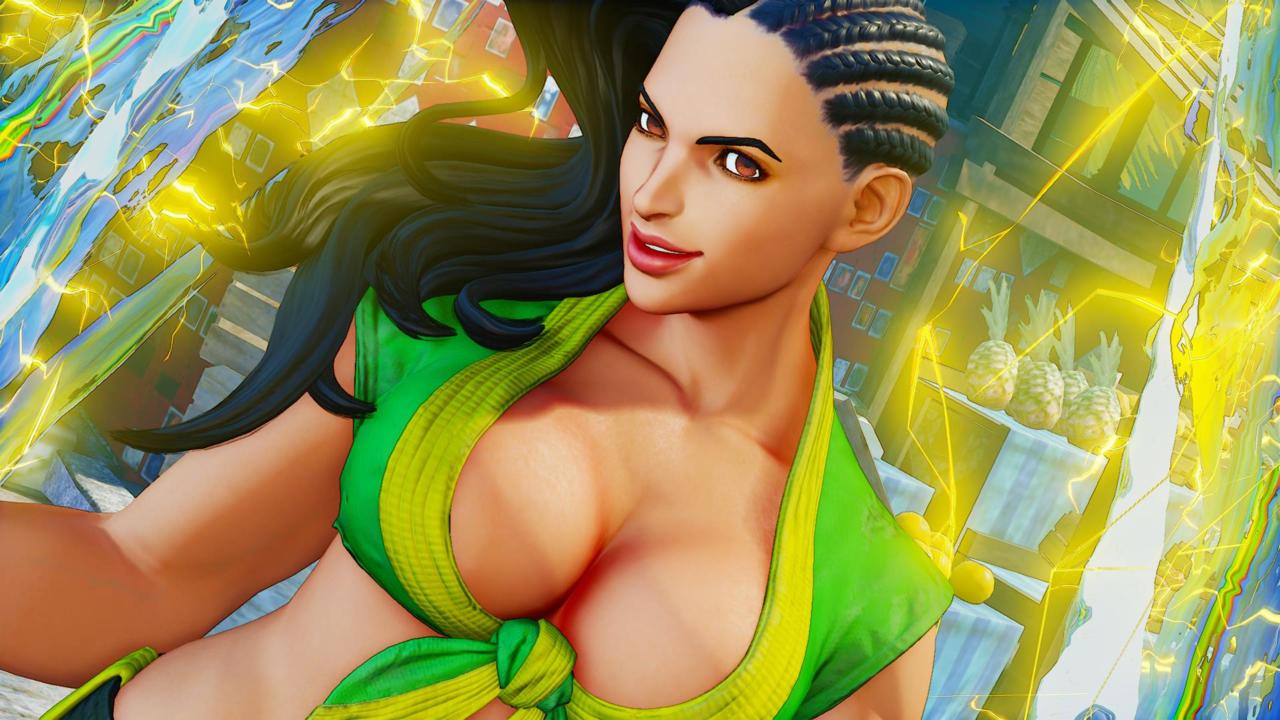Street Fighter Web Series Director Explains Why Video Game Movies Suck
We chat to Street Fighter: Resurrection director and writer Joey Ansah.
Street Fighter: Resurrection is a live-action miniseries which covers the events leading up to Capcom's recently released fighting game, Street Fighter V. The series spans four episodes, and is written and directed by Joey Ansah, who also wrote and directed the Street Fighter: Assassin's Fist web series. We sat down with Ansah to discuss the upcoming sequel, Street Fighter Resurrection, and why video game movies are often critically panned by fans.
GameSpot: What is it like making something for an audience who already has a huge, long-running investment in the universe?
Ansah: It's a double-edged sword. I am one of those fans; that's what helps. I don't feel separated from the rabid fanbase, that would be ready to judge. And to be honest, I did judge the last two films, which is why I'm doing this in the first place. I was so incensed with what was going on in the live-action scene. I was like, if I can do it better, I'll do it.
So you have a lot of passion from fans and if they get behind you, it's great. Assassin's Fist as you know has a very intense fanbase. But they are very critical. We live in the era of the troll, the generation that have grown up with the internet. It's almost the done thing to leap on and ignorantly judge and criticise things before you even look at it, or look at the context of what it is. I'm all for if people put out logical, well thought-out criticism. Being a filmmaker dealing with popular IP, you're stepping into the lion's den to a degree. It's almost like guilty until proven innocent. Look at even the flak Zack Snyder's getting for Batman v Superman: Dawn of Justice. Or Ben Affleck got when people were told he was going to be Batman. You're condemned, instantly. Just for touching the stuff you're condemned.
But that just comes with the territory. You just have to be very sure that what you're doing… if it doesn't excite me, I feel it's not going to excite the audiences. Because I'm a fan, I feel I have a very accurate litmus test on what is going to fly and what's not.
Why do you think video game movies are often badly received both critically and by fans of the games they are based upon?
I have a detailed and informative answer for you. You've got to look at the business of film-making. In a utopian world, any of these being converted into motion picture on a big scale, whether it be a Batman, Street Fighter, Halo, whatever, you would always assume and hope that whoever it is at the studio who greenlights this that there's someone working at the company that says, "I am the biggest Halo fan, I know everything about this universe, let's make this film. Because I know what makes the gamers tick, and I have a vision for how we can convert this to live-action on screen."

But it doesn't work like that. A studio or production company sees that a game has just grossed X amount of millions, and has this big a fan base, and they do some exploring and find that the live-action rights are up for grabs. So they purchase those rights and say, let's just do a four [million budget] movie. Let's just get a director who has just done something similar… let's get a Fast and Furious director, tick. Is he a fan of the game, does he know the game? No, doesn't matter. Did his last film make a lot of money? Yeah, that's what matters. What young up-and-coming cast can we get? Do they know the game, are they martial artists? No, doesn't matter, we'll just stunt doubles. They just go down a checklist like this and they'll bang it out there.
That is why these films are so awful. Because the inception of the idea to making it is never being driven by someone who knows the property inside-out and has a strong vision for it. There are examples where it does work--Zack Snyder's 300, clearly a massive fan of Frank Miller's work. The fact that he had Frank Miller on set consulting, shows his reverence to the source material. That graphic novel has been represented on film almost frame for frame, panel to panel. I think that film was a great triumph. Nolan and his Batman films, he's a self-confessed Batman fan. So there are examples where it does work. But more often than not, that's not the case.
What's the thought process behind translating unrealistic characters into their real-life counterparts? For example, Ryu and Ken are unrealistically buff, and Cammy fights in a really uncomfortable looking outfit.
It's not easy. It takes a lot of nuanced consideration. It all starts with casting. You need someone who by their genetics happens to look like the character. Then add in harder odds that they have to ideally be a professional actor already, be a martial artist or have a strong physical background, and have the ability to monitor their physique through weight-training and dieting, to achieve the desirable look. It just means there are very few candidates.
For me, the actors portraying these characters have to be the real deal. I don't want stunt doubles. On Resurrection, there was no stunt doubling. On Assassin's Fist, Ryu and Ken had no stunt doubles, I wasn't a stunt double playing Akuma, only Gouken and Goutestu for a little bit… but for the most part, what you're seeing on screen is the real deal. I think that makes it special. It makes you believe.
Costume design is very important. We referenced the costumes exactly as they are in the game, visually and texturally. Even subtle things like how Ryu's headband flutters in the wind. What kind of fabric can we use that's light enough to get that rippling, ribbon-style flutter? This is how nerdy we get.
All these things come together… but the root of it is the casting. If the casting's right, everything else can fall into place around that.
Street Fighter Resurrection focuses on Charlie Nash this time. Why did you choose him?

I'm a Guile fan, and also a Charlie fan from back in the day. Charlie died, at the end of Street Fighter Alpha 3. He has been dead and gone all this time and is now magically back. The very first CG trailer that Capcom released for Street Fighter V was Charlie, back. But he's like Frankenstein's monster. He's got all these coloured skin grafts on him, looks like dying flesh. And I thought this was interesting, Capcom's gone for this bombastic look for this guy. But he must've been in some kind of stasis… at some point the illuminati have potentially acquired him. But who brought him back and all of that to explore is really interesting. He's a real anti-hero. I really enjoy writing and bringing to life anti-heroes. They're not straightforward. I'm bored of films where they instantly say, "Here's your hero and we're going to force-engineer you to like him." It's much nicer if they present you with a character who is multifaceted.
How much liberty do you have when you're writing the story, or do you mostly have to stay within the parameters of Capcom’s existing universe?
My kind of boat is about being true to the canon. I think what pissed a lot of people off about the two movies that came out is that they completely went off-piece and took huge liberties. They were turning it into something else that's no longer Street Fighter. It's a vague interpretation of Street Fighter. It goes without saying that adhering to the canon is a must. And sometimes the canon that Capcom have created is f**king ridiculous. I have to be quite inventive to make that work in a believable, intelligent way. That's part of the fun, part of the challenge. Elements in the Street Fighter story are quite cartoony and not very deep.
Capcom trusts me now, which is nice. Resurrection has been the hardest to do, because at least with Assassin's Fist, there have been anime series and official comic books that have told elements of Ken and Ryu's early years, so there is at least some established canon for what has happened. When I tried to do Resurrection, which is like a prologue for Street Fighter V and set after Street Fighter IV, there's a big question mark for what has gone on there.
At the time I was developing this and told Capcom the story I was going to tell, they'd only announced the only new character. And I was like well, I want another new character, who else have you got? And they sent me sketches of Laura.

There were things I wanted to put in that I had to change to fit the canon. It was hard because it's not like Capcom gave me a special story book saying here's all the new canon, six or seven months before the game comes out. I had to ask questions and they would say, "Yes, this is canon" or "No, the direction you're going in is counter to the canon." They wouldn't really give specifics.
<><><>
For more on the Street Fighter franchise, check out GameSpot's Street Fighter V review.
Got a news tip or want to contact us directly? Email news@gamespot.com
Join the conversation